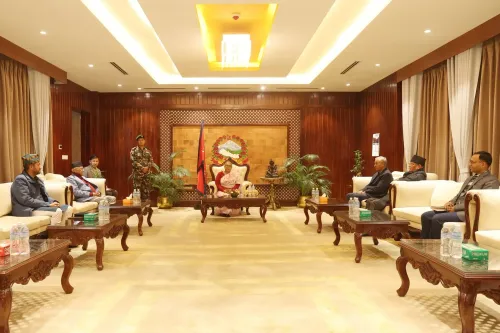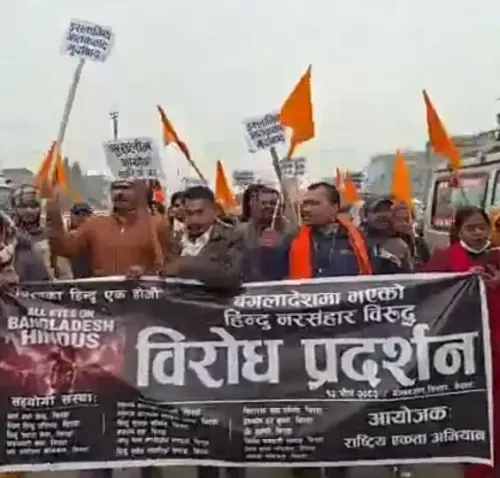What Happened to the Seven Students of Chittagong University During Their Hunger Strike?

Synopsis
Key Takeaways
- Seven students fell ill during a hunger strike for administrative accountability.
- Health complications arose from prolonged fasting.
- The incident highlights the ongoing political unrest in Bangladesh.
- Students are resilient in their demands for change.
- Widespread protests reflect deeper issues within the governance of Bangladesh.
Dhaka, Sep 12 (NationPress) Seven students from Chittagong University experienced health issues on Friday while participating in a hunger strike aimed at securing the resignation of the university's proctorial team. Reports from local media indicate that three of these students are currently receiving care at CU's medical facility.
According to Abul Kashem, a physician at the center, the students are facing salt and sugar deficiencies due to their extended fasting. Their sugar levels and blood pressure have dropped significantly, as reported by the Dhaka Tribune. Kashem noted that the students' conditions are being closely monitored and appropriate treatment is being administered.
The seven students who fell ill are part of a group of nine who initiated the hunger strike outside the proctor's office under the banner of 'Odhikar Sacheton Shikkharthibrindo' at approximately 12:30 PM (local time) on Wednesday.
Sumaiya Shikder, a marketing student, expressed that many participants had already become ill, yet the administration refused to take responsibility. She mentioned that the officials claimed they lacked the authority to comply with the students' demands. The students have rejected the administration's offer and stated their hunger strike would persist until the proctorial body steps down.
Bangladesh has been engulfed in widespread protests and extreme lawlessness since the democratically-elected government of the Awami League, led by former Prime Minister Sheikh Hasina, was ousted during violent protests last year.
Earlier this month, the Awami League declared that Bangladesh is facing its most severe crisis in over a decade, driven by Islamist militancy, extremism, economic collapse, unemployment, and widespread unrest under the interim government led by Muhammad Yunus.
In a report titled ‘Bangladesh’s Crisis Deepens in 2025: A Nation in Decline’, the party emphasized that the military-backed interim administration that took over after Sheikh Hasina in 2024 has failed to stabilize the nation, leading to a downturn in economy, security, and democracy.
The Awami League highlighted that under the Yunus administration, the economic decline is not merely a slowdown; it is a systemic collapse affecting livelihoods and social stability.
“GDP growth has plummeted from 6.1 percent in 2023 to just 2.3 percent in 2025. Inflation exceeds 12 percent, with food inflation at 16 percent, disproportionately affecting the poor. Foreign reserves have diminished from $33 billion (2022) to $14.5 billion (July 2025), leading to fears of a balance-of-payments crisis,” the report elaborated, shedding light on the economic turmoil in Bangladesh.
“Youth unemployment has surged beyond 28 percent, the highest in South Asia. Remittances, vital for millions, have fallen by 11 percent year-on-year. Over two million workers in the garment sector are facing potential layoffs due to decreasing exports,” it added.
The Awami League contended that the only feasible route to navigate Bangladesh's crisis is to conduct free, fair, and inclusive national elections that include all major political parties under a neutral caretaker arrangement.
The current interim government is closely associated with the National Citizens’ Party (NCP) and has exhibited evident bias, rendering it incapable of overseeing impartial elections. The party cautioned that without a genuinely neutral framework, any electoral process risks solidifying the existing environment of repression, lawlessness, and injustice in Bangladesh.










